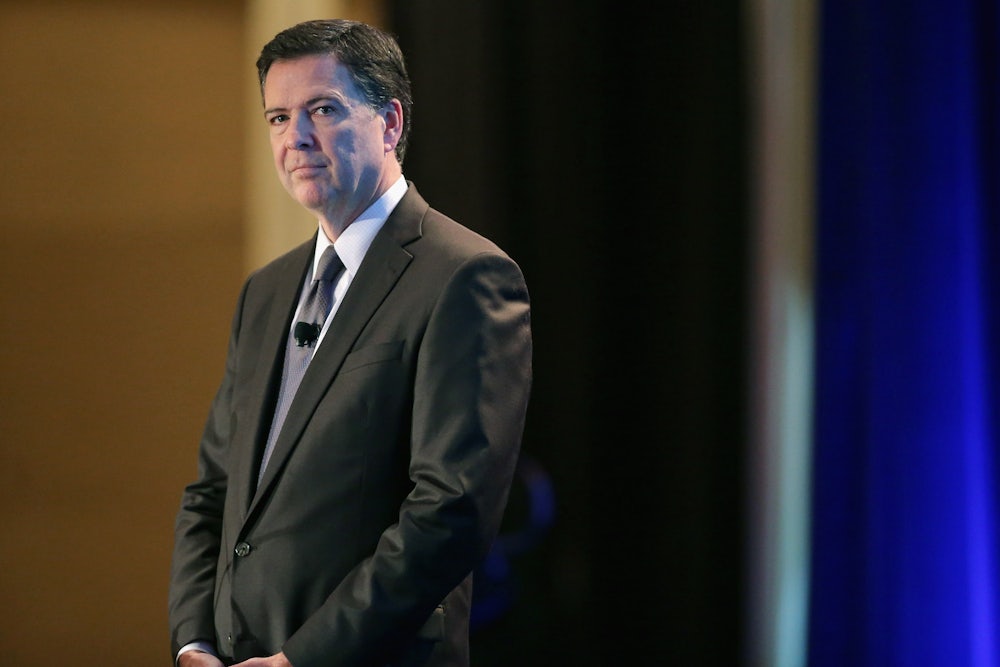No one deserves blame for Hillary Clinton’s stunning defeat more than her and the Democratic Party establishment that she represents. But there are growing signs that Comey’s eleventh hour decision to reinsert himself and the FBI into the presidential race had stunning consequences for the country.
Bloomberg has a great piece about Trump’s data team that makes them look like Obama 2012-level geniuses, which is not the most depressing thing I’ve written in the past 48 hours, but it’s pretty close. Trump’s data model was different than the ones used by many pollsters—it predicted an angrier, older, whiter electorate that was more responsive to Trump’s message, and more likely to identify Hillary Clinton as a representative of the political establishment that they detest. But this model also showed Trump losing and losing badly until the election’s final days. And then things started to shift in their favor.
Trump’s analysts had detected this upsurge in the electorate even before FBI Director James Comey delivered his Oct. 28 letter to Congress announcing that he was reopening his investigation into Clinton’s e-mails. But the news of the investigation accelerated the shift of a largely hidden rural mass of voters toward Trump.
Inside his campaign, Trump’s analysts became convinced that even their own models didn’t sufficiently account for the strength of these voters. “In the last week before the election, we undertook a big exercise to reweight all of our polling, because we thought that who [pollsters] were sampling from was the wrong idea of who the electorate was going to turn out to be this cycle,” says Matt Oczkowski, the head of product at London firm Cambridge Analytica and team leader on Trump’s campaign. “If he was going to win this election, it was going to be because of a Brexit-style mentality and a different demographic trend than other people were seeing.”
And that’s exactly what happened, particularly in the Upper Midwest. It’s possible that Comey was simply incidental—the polls had, in fact, started tightening before Friday October 28, the fateful day of Comey’s letter. (Incidentally, October 28 is also a big day in the mythology of Ronald Reagan.) But there is a great deal of evidence that Comey’s role in swinging the election to Trump was instrumental.
